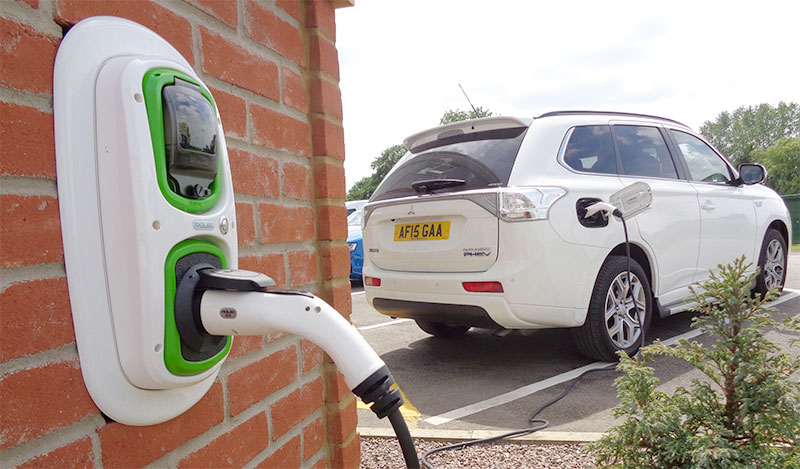BHEL‘s scope of work in the project includes design, engineering, manufacturing, supply and installation of EV charging stations along with a central monitoring system. Each charging station will be equipped with a rooftop solar power plant to supply green energy to fast and slow chargers planned to be installed at the location.
The project is covered under the Indian government’s FAME scheme—Faster Adoption and Manufacturing of (Hybrid &) Electric Vehicles in India.
Notably, the company has already installed DC chargers at Udyog Bhawan in New Delhi. BHEL is also executing another commercial order for installation of DC chargers across various locations in the country.
As part of its diversification initiative, BHEL has equipped itself to foray into manufacturing of EV chargers, electric buses and related critical components. It has also undertaken in-house development of EV motors, propulsion systems and fast chargers.
The company has established capability in major segments of the PV value chain including solar cells and modules, and power conditioning units and systems. In addition to PV products, BHEL offers EPC solutions from concept to commissioning for off-grid and grid-connected PV power plants. It is also in talks with lithium ion battery manufacturers to set up a manufacturing unit in India.
EV charger market in India
By 2030, as many as 40% of new vehicles sold in India—approximately 24 million—could be battery powered, according to a study by Germany-based, TFE Consulting. This is encouraging given that in 2017, less than 0.01% of cars sold in India were electric and there were only 220-250 operational charging stations, compared to 56,000 petrol stations.
Currently, while electric cars offer up to an 80% reduction in operating costs compared to diesel or petrol cars, their capital costs are 40-100% higher. It also takes around 150 km, as a daily driven distance, for an electric car to outcompete a petrol car.
With government organization Energy Efficiency Services Limited (EESL) floating a tender for 10,000 electric vehicles and increasing consumer interest, there is a vast business opportunity for building fast charging stations. To create a stable supply of power to these charging stations, the EV transition would need to be managed together with a higher share of fluctuating wind and solar PV power in India’s grid.
Hero Future Energies and ABB are among the top companies setting up solar PV-powered charging stations for electric vehicles.
This content is protected by copyright and may not be reused. If you want to cooperate with us and would like to reuse some of our content, please contact: editors@pv-magazine.com.









By submitting this form you agree to pv magazine using your data for the purposes of publishing your comment.
Your personal data will only be disclosed or otherwise transmitted to third parties for the purposes of spam filtering or if this is necessary for technical maintenance of the website. Any other transfer to third parties will not take place unless this is justified on the basis of applicable data protection regulations or if pv magazine is legally obliged to do so.
You may revoke this consent at any time with effect for the future, in which case your personal data will be deleted immediately. Otherwise, your data will be deleted if pv magazine has processed your request or the purpose of data storage is fulfilled.
Further information on data privacy can be found in our Data Protection Policy.